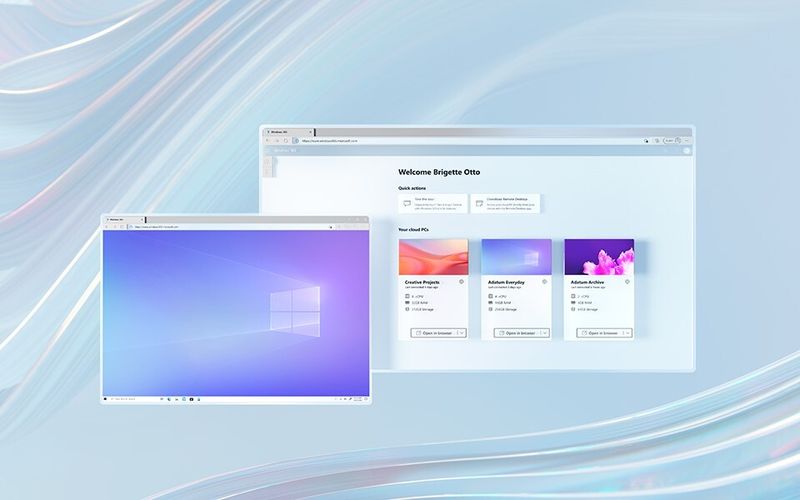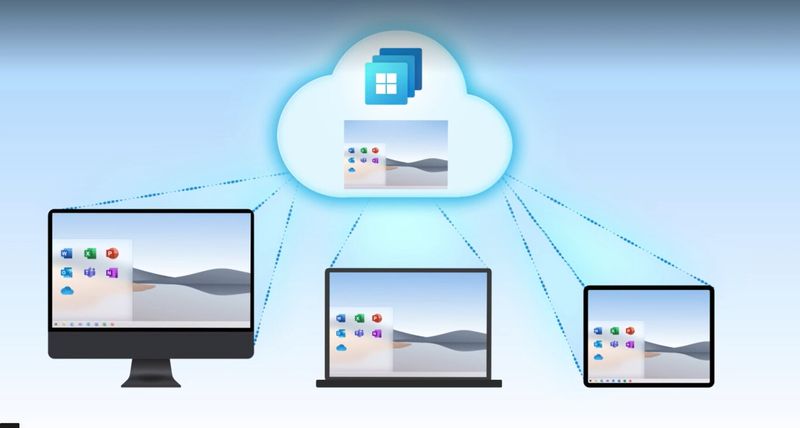Microsoft has officially announced the new Windows 365, a proposal with which they talk about “hybrid personal computing” thanks to Cloud PC or the PC in the cloud. This is the key point here, Windows 365 is a new Microsoft service, not a new operating system as Windows 11 would be.
Windows 365 will work with Windows 10 or Windows 11, and this is because what Microsoft is selling is not the system, it is the processing power to host that system and be able to perform operations. As they explain: Windows 365 will be a new way to experience Windows 10 or Windows 11.

Windows 365 will be a new product of the family of services that has brought Microsoft the most benefits in recent years: cloud computing. Azure is the goose that lays the golden eggs in the enterprise, and this new service is a very meaningful evolution within that ecosystem.
Windows 365 will allow access to Windows 10 or Windows 11 from any browser or also using the Windows Remote Desktop application. The idea is to offer an instant boot experience that presents you with everything exactly as you left it even if you switch devices.
Microsoft will rent you a version of Windows of your choice (10 or 11) virtualized on a machine. The company will offer up to 12 different hardware configurations for virtualized machines. A company could “create PCs” in minutes and assign one to each employee, without the “hassle” of managing physical hardware.
Windows 365 will offer the full Windows 10 or Windows 11 experience, including apps, data, and settings for all your devices.

What people will pay for is access to the processing power of that hardware, plus the convenience of the virtual machine always being accessible in the cloud from anywhere, with support from Microsoft and the extra security that such a closed ecosystem would bring.
When we say that what matters least is Windows, we don’t mean that Windows doesn’t matter, but that in this case, the operating system is just one piece of a much bigger puzzle.
Here it won’t matter if you have a Macbook, a Linux PC, an Android phone, or an iPad; from any of those devices, you will be able to access your virtual PC with Windows in the cloud. It’s the same thing Microsoft is doing with Xbox, where the least important thing is Xbox the console, and instead, it is Xbox, like Game Pass, the service that wants to reach everywhere also betting on the cloud.
While virtualization and remote access are nothing new, this strategy from Microsoft itself is, and has the potential to change a lot, especially if the prices (which will not be announced until next August) are truly competitive and come out on top.
The company says it is confident that this will be a big change for many organizations that have wanted to try virtualization, but for reasons of complexity and cost, had not done so before.
Microsoft already has a lot of successful experience in the software-as-a-service world, Office 365 (now Microsoft 365) is proof of that, Xbox is going that way, and with Windows 365 and its hybrid model, they will be able to sell access not just to the software, but to the processing power of the hardware needed to run it… and without having to sell you a Surface.
Even beyond the enterprise realm, Windows 365 also has potential for the personal user, after all, we’re talking about a hybrid model. It’s not something that completely replaces your computer, and requires you to have a device to enjoy the full Windows experience anyway; but, it could replace the need to have the most powerful hardware on hand, or to have more than one physical computer (work + home for example).





